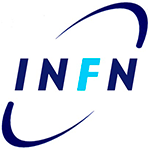Dr. Simone Felicetti
Collective Quantum Enhancement in Critical Quantum Sensing
Critical quantum sensing (CQS) is by now a well-established approach, based on the exploitation of quantum properties spontaneously developed in proximity of phase transitions. Numerous theoretical studies and first experimental demonstrations show that a quantum-enhanced sensing precision can be achieved by exploiting static or dynamical properties of many-body systems in proximity of the critical point. In recent seminal contributions, it has been shown that CQS protocols can be implemented using finite-component phase transitions (FCPTs), where the thermodynamic limit is replaced with a rescaling of the system parameters. This class of phase transitions emerges in quantum resonators with atomic or Kerr-like nonlinearities, and it is of high theoretical and experimental relevance. Designing sensing protocols based on FCPT presents three main advantages: (1) Theoretically, FCPT allows us to analytically (or semi-analytically) investigate achievable precision, and compare it with fundamental bounds of quantum metrology. (2) Experimentally, FCPT provides a feasible approach to implementing optimal critical quantum sensors using small-scale, controllable devices. Finally, (3) physical devices undergoing FCPTs can be easily coupled and embedded in linear chains or bi-dimensional lattices. It is then feasible to implement arrays of coupled critical systems and generalize the CQS approach to the multipartite case. Here, we show for the first time that achieving collective quantum enhancement in CQS is possible using an array of critical quantum sensors. We demonstrate both a fundamental advantage, in terms of scaling with fundamental resources, and a practical advantage, in terms of accessible physical parameters. In particular, we consider a model composed of a chain of nonlinear quantum resonators coupled via parametric nearest-neighbour coupling. We focus on the weak nonlinearity limit, where each node of the array becomes locally critical. We assess the metrological performance of a static CQS protocol by analytically computing the quantum Fisher information (QFI) over the ground state manifold. In proximity to the critical point, we find closed-form analytical solutions for the asymptotic scaling of the QFI with respect to fundamental resources, i.e. the number of resonators, the number of excitations, and the protocol duration time. This analysis allows us to benchmark the estimation precision achievable with the coupled-resonator array, with that achievable with the same number of independent critical sensors. We find that the interacting array achieves a quadratic enhancement in the scaling of the QFI with respect to the number of resonators, an unambiguous demonstration of collective quantum enhancement. Beyond asymptotic scalings, we find a technologically relevant advantage for finite values of the physical parameters. This work paves the way for designing and implementing multipartite critical quantum sensors.





